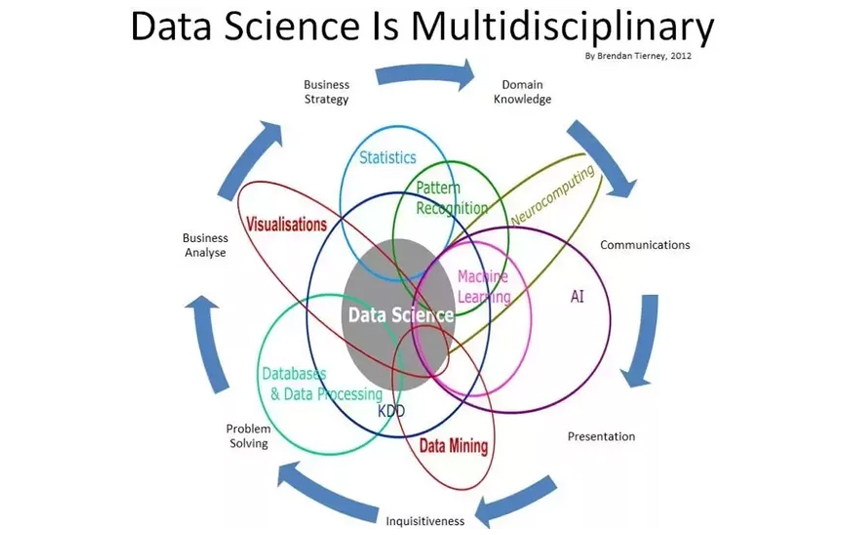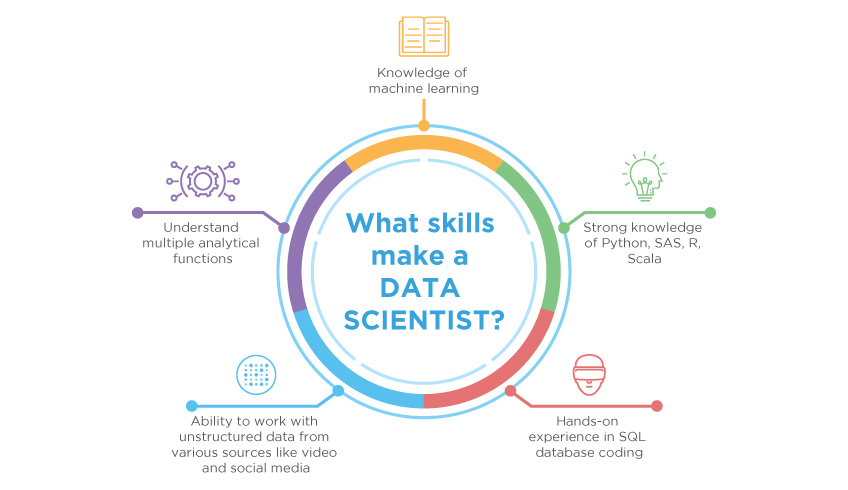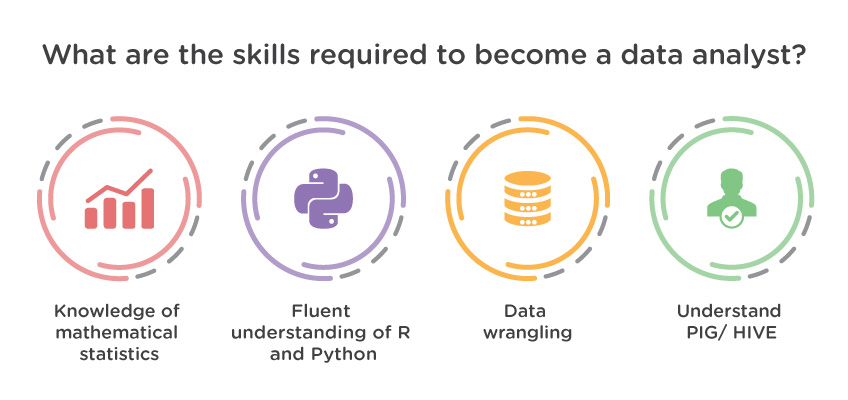Q1. Is MSc in Data science/Data Analytics same as ML/AI as some universities don’t have AI but Data Science?
Q2. I am interested in MS Data Science and not MS Analytics as the later is not technical in nature. Are MS Data Science and MS Data Analytics the same?
Q3. How to Choose Between a Master’s in Data Analytics vs Business Analytics?
Q4. Which are the best universities for Master in Mahcine Learning and Aritificial Intelligence? There are many blog posts around top MS Data Science programs. But, I am unable to figure out the top MS Machine Learning / MS Artificial Intelligence programs.
These are some of the queries that I received from many folks who reached out to me for guidance or consultation in 2018 – 2019. Obviously, due to capacity and other factors, many candidates didn’t get the opportunity for the personalized sessions. So, through this article, I intend to reach out to a wider audience.
Data Science, Machine Learning (ML), Artificial Intelligence (AI), and Analytics are extremely inter-related. More often than not, candidates struggle to choose the right program at the Masters (MS) level. In this post, we will discuss some of the basic differences among themselves. Additionally, we will also discuss how to choose the right program and top universities for Masters in Machine Learning and Artificial Intelligence.
MS Data Science vs MS Machine Learning / AI vs MS Analytics
Data Science vs Machine Learning / Artificial Intelligence
Data science is a study of the extraction of data. Data science works fundamentally through the formulation of hypotheses Example, Guessing a solution of the data and analyzing it and then finding a reasonable solution through observations and concluding whether the hypothesis is right or falsify it. Data science is an umbrella of all the techniques and methods which are used to analyze the massive data sets. Various scientific methods are used and are combined with algorithms to extract similar data all around and then it is converted into simpler data for the sake of analysis and better understanding.
Data science is an umbrella term that encompasses data analytics, data mining, machine learning, and several other related disciplines. While a data scientist is expected to forecast the future based on past patterns, data analysts extract meaningful insights from various data sources. A data scientist creates questions while a data analyst finds answers to the existing set of questions.
In simple terms, Machine learning is a subset of artificial intelligence in the field of computer science that often uses statistical techniques to give computers the ability to “learn” with data, without being explicitly programmed. The machine learning concept was designed to allow the computers to learn automatically and adjust themselves according to the need. It is the fastest and most flexible predictive model in the world which is used massively for predicting the availability of the supply and demand in the world.
Machine learning can be defined as the practice of using algorithms to use data, learn from it and then forecast future trends for that topic.
Key Difference between Data Science vs Machine Learning
To make things simpler, you can consider machine learning as a part of the broad field of data science, at least when it comes to choosing between MS Data Science and MS Machine Learning.
Data science uses ML to analyze the data and make possible predictions about the near future. It also combines with other disciplines like big data analytics and cloud computing to give the best and appropriate results.
Machine learning uses various techniques like regression and supervised clustering. On the other hand, ‘data’ in data science may or may not evolve from a machine or a mechanical process. So, the main difference between data science and machine learning is that data science as a broader term not only focusses on algorithms and statistics but also takes care of the entire data processing methodology.
Data Science vs Data Analytics
As mentioned earlier, data science is the umbrella term and is a multidisciplinary field focused on finding actionable insights from large sets of raw and structured data.
Data analytics is a more focused version of this and can even be considered part of the larger process. Analytics is devoted to realizing actionable insights that can be applied immediately based on existing queries.
Another significant difference between data science and data analytics is a question of exploration. Data science isn’t concerned with answering specific queries, instead of parsing through massive data sets in sometimes unstructured ways to expose insights. Data analysis works better when it is focused, having questions in mind that need answers based on existing data. Data science produces broader insights that concentrate on which questions should be asked, while big data analytics emphasizes discovering answers to questions being asked. Read more about the differences between a data scientist and a data analyst.
MS Data Science vs MS Analytics – How to Choose the Right Program?
Data Science and Data Analytics are extremely overlapping and inter-related. The techniques and tools are also quite similar. You can use both R and Python in data science and analytics.
The major difference is around the applications. For example, R is more suitable for Analytics (deriving insights from data and/or data visualization) whereas Python is more suitable for Data Science (predicting the unknown).
You can become a Data Scientist by pursuing MS Analytics. Similarly, you can become an Analyst after studying MS Data Science.
This is what Abraham Cabangbang, Senior Data Scientist at LinkedIn commented on the difference between data analyst and data scientist:
“It’s definitely a gray area. At my previous company, I did both the analyst and scientist jobs and as an analyst, we were more customer-facing; the tasks we did were directly related to the tangible business needs—what the customers wanted/requested. It was very directed. The scientist role is a little more free form. The first thing I did as a data scientist is work on building out internal dashboards, basically surfacing information that we were tracking on the back end, but weren’t being used by the data analysts for many reasons; for example, we might have lacked the infrastructure to display it, or the data was just not very well processed. It really wasn’t anything tailored out from a customer need, but came from what I noticed the analyst team needed in order to do their job.”
Data Analytics vs Business Analytics
Within the broad field of analytics, there are two segments: data analytics and business analytics. So, what are the differences between data analytics and business analytics?
Master’s in Data Analytics
- Courses focus on data operations, including advanced analytics
- Strong mathematical focus typically geared for professionals with a STEM background
- Develops system architects to prepare data for advanced analytics
Master’s in Business Analytics
- Advanced analytics courses focus on transforming data into insights and competitive business advantages
- Builds corporate communications skills needed to effectively convey findings to leadership
- Appeals to a STEM audience but also tailored to varying professional backgrounds
As per Valerie Schwartz, Head of Admissions, MS Analytics, NC State:
My advice to prospective applicants is to have a clear picture of what you want in a graduate program and then do your research to identify programs that deliver your desired attributes. Even among programs that are seemingly similar, you will observe differences in selectivity, curriculum, structure, cost, and reported outcomes.
If you wish to study among motivated, high-achieving classmates, you should consider programs that are selective in whom they admit. If you’re looking for a carefully calibrated curriculum that continuously evolves to meet changing industry demands for well-rounded data science professionals, a program like NC State’s MSA is a better fit than one which simply offers a menu of courses. Of course, you should evaluate a program’s return on investment as well.
NC State’s Institute for Advanced Analytics faculty recently used text scraped from 259 program websites categorized as degrees in data analytics, business analytics, and data science, and analyzed the similarities in program and course descriptions.
MS Data Science vs MS Machine Learning vs MS Analytics – How to Choose the Right Program
Data science could be considered as the incorporation of multiple parental disciplines, including data analytics, software engineering, data engineering, machine learning, predictive analytics, business analytics, and more. It includes retrieval, collection, ingestion, and transformation of large amounts of data, collectively known as Big Data. Data science is responsible for bringing structure to big data, searching for compelling patterns, and finally advising decision-makers to bring in the changes effectively to suit the business needs. Data analytics and machine learning are two of the many tools and processes that data science uses.

Image Source: here
MS Data Science, MS Data Analytics, and MS Machine Learning are some of the most in-demand study abroad programs right now. The right program along with the combination of the right skill sets and real-world experience can help you can secure a strong career in these trending domains.
There is not a clear-cut answer to MS Data Science vs MS Machine Learning and AI vs MS Analytics. It completely depends on your profile, existing skills set, and career goals. Here are few tips to minimize the confusions.
Check the Eligibility Criteria of the Specific Programs
The majority of MS Data Science (and MS Machine Learning programs) require solid knowledge of programming, linear algebra, statistics. In contrast, MS Analytics programs do not always ask for prior programming experience. So, check how much you know and see where you can apply.
Secondly, explore and introspect what do you want to learn. This is very important. Even a Data Science program at ABC University can be pretty different in terms of content from a Data Science program at XYZ University. Similarly, you can also become a data scientist by pursuing MS Analytics. So, more than the program name, you need to do thorough research on the program content.
Assess Your Existing Knowledge and Skill Set
It’s always better to start with a broad field and then figure out the specialization. For freshers (no professional work experience), I would always recommend MS Computer Science with specialization in Data Science or Machine Learning/AI.
If you have got 2 – 5 years of work experience and you know R/Python, a few other programming languages(s), and big data tools along with solid knowledge of statistics and mathematics, MS Data Science is a great option.
Masters in Data Science is a combined degree in computer science, statistics, and business. The master graduates from this background are given a lot of importance while taking a decision in the organization. If you have pro knowledge in Data Visualising techniques and can extract lots of unstructured data into simplified data then masters in data science can take you a long way in your career path.
If you possess little knowledge of programming (R, Python, Scala, Java, PHP etc.), but a fan of stats and maths, you could opt for MS Analytics (MS Data Analytics). If you don’t have prior experience in programming/coding, MS Business Analytics could be a better option. Alternatively, if you have more than 5 years of professional work experience or you want to be on the product management side, you could also consider MBA with specialization in Analytics.
Only if you have been working on R, Python, and other big data tools for more than 5 years in the product division, then you could think of MS Machine Learning if you want to stay in the technical domain.
For pursuing Masters in Machine Learning, you must have strong technical skills and you should be familiar with implementing them with perfection then Masters in Machine learning will be the best option for you. This course requires the creation of new algorithms and expert knowledge of mathematics and statistics. If you can with maths and write machine learning models then Masters in Machine learning is for you and you can make a bright career.
Assess Your Learning Outcomes and Figure Out Your Career Objectives

Image Source: here

Image Source: here

Image Source: here
MS Data Analytics vs MS Business Analytics
Earning an MS in Data Analytics is a good option for professionals with a STEM background who are interested in learning how to gather, organize and analyze data in or outside of a business context. Courses included in a master’s in data analytics program will give students hands-on experience with analytical techniques such as multiple regression and logistic regression, teaching them how to find critical patterns within datasets.
An MS in Business Analytics typically offers courses that provide a comprehensive set of both technical and business skills, including management and communications. Business analytics professionals use analytical tools for improved business decision making. Their starting point is a specific business application, for which they identify which data and methodologies are best suited to approach the problem at hand.
Like their counterparts in a data analytics graduate program, business analytics students will learn how to discover data trends. However, business analytics students not only learn the tools and techniques for analyzing both small and large data sets, but they also do so within specific business domains and recognize which analytical tool is most effective for solving a given business problem.
I hope this gives the readers a better overview. In case you wish to learn more, read my full article here.
